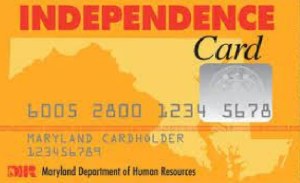By Megan Sayles,
AFRO Business Writer,
Report for America Corps Member,
msaylesafro.com
A 26-year-old woman from Baltimore is the latest victim of fraudsters who hacked her electronic benefits transfer (EBT) cash benefits. While checking her balance on an app, she saw that someone had withdrawn $676 from her EBT account at a PNC Bank in Florida.
The woman spoke to the AFRO under the condition of anonymity, but revealed her identity to the editorial department.
When she reached out to Baltimore City Department of Social Services (BCDSS), she was told that they could not replace any of the funds that had been stolen. Instead, she was instructed to file a police report.
“I couldn’t even get my daughter anything for Christmas, so I had to borrow stuff from people,” she said.
While this is her first encounter with someone hacking her EBT card, she’s seen others make social media posts urging people to check their accounts because their money had been stolen.
In one, Baltimore resident Yvette M. Brooks warned that people are posing as social services’ employees and sending texts and calling to ask for EBT card information and pin numbers. She told people not to respond to the requests because benefits are being stolen.
In May, the Maryland Department of Human Services (DHS) issued a statement warning Supplemental Nutrition Assistance Program (SNAP), Temporary Cash Assistance (TCA) and Temporary Disability Program (TDAP) recipients to take extra precautions to safeguard their benefits.
“As of Nov. 2, there were 1,413 incidents of EBT card fraud reported in Maryland since Jan. 1, (SNAP, Temporary Cash Assistance, and Temporary Disability Assistance Program). As of Nov. 2, the total federal SNAP dollars reported as a loss in Maryland since January 2022 totalled approximately $696,000,” according to information shared with the AFRO by DHS spokeswoman Kathleen A. Morris.
In addition, she said, “Our outreach material on this issue includes instructions on how to check Automated Teller Machines (ATM) and Point of Sale (PoS) devices to ensure that they have not been tampered with before using them, and encourages EBT card holders to change their PINs periodically and report fraud incidents immediately upon discovery.”
It recommended that people change their pins frequently, use strong passwords, examine card slots and use only USDA-approved payment processors.
In the statement, DHS said the state is unable to replace any stolen benefits.
Parham Eftekhari, executive vice president of the CyberRisk Alliance, said most people do not know that their EBT benefits can be stolen or what to look out for. In turn, fraudsters seek out people to exploit, he said.
“Like many criminals, cyber criminals often prey on the most vulnerable members of society. Individuals who rely on government EBT cards are at high risk of fraud because many do not have access to cyber hygiene or cybersecurity awareness and prevention training, which is often delivered in corporate settings and academia,” said Eftekhari.
According to Eftekhari, criminals can steal EBT card information through skimmers, devices placed on ATMs and other point-of-sale devices to steal card information, and phishing scams, fraudsters pretending to be government agencies and asking for card information.
He said it’s also possible for criminals to breach government systems to identify EBT recipients so they can use the data to steal funds or choose a phishing target.
To reduce the risk of their account being compromised, people should refrain from giving their pin and account numbers over the phone, regularly check their balance and use all security features that are offered by the benefits’ supplier, like spending alerts, according to Eftekhari.
“This is a trend that virtually every state and federal government is experiencing and will continue to grow. Users should be vigilant and reach out to the issuing agency to be sure they have activated all security features offered by the agency,” said Eftekhari. “Simultaneously, federal and state governments should build in security requirements such as only issuing cards with EMV, offering multi-factor authentication and offering something similar to FDIC insurance to protect victims of digital fraud.”
Help us Continue to tell OUR Story and join the AFRO family as a member –subscribers are now members! Join here!
The post Fraudsters steal EBT cash benefits from Baltimore residents, officials say they won’t replace stolen funds appeared first on AFRO American Newspapers .










